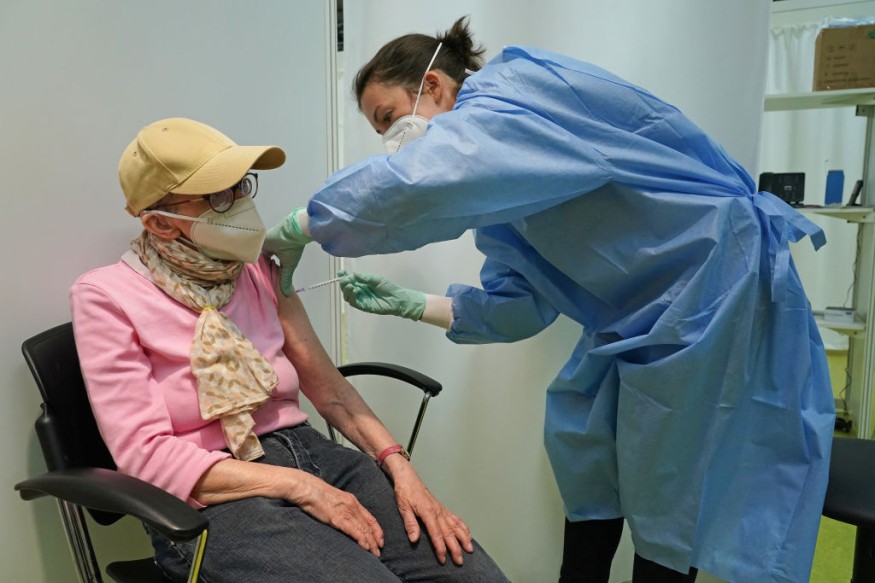Vaccines approved by the US Food and Drug Administration, Pfizer-BioNTech and Moderna, have been effective in the battle against COVID-19 especially among the highest-risk elderly demographic.
In a federal study published on the CDC website and entitled "Effectiveness of Pfizer-BioNTech and Moderna Vaccines Against COVID-19 Among Hospitalized Adults Aged ≥65 Years - United States, January-March 2021 released by the US Centers for Disease Control and Prevention," both vaccines were proven to be highly effective for seniors to avoid hospital admissions. Older adults comprise the age group that is at greatest risk of severe illness and death due to COVID-19.
Fully Vaccinated Elderly People Less Likely for Hospitalization
The study found that fully inoculated adults aged 65 and above were 94 percent less likely for hospitalization due to COVID-19 than those unvaccinated in the same age group, the CDC said. Partially vaccinated people was 64 percent less likely to be admitted to a hospital for the disease than those not vaccinated, the study further noted.

The risk for severe illness elevates as we grow older with the CDC prioritizing elderly adults for vaccination. Around 68 percent of adults aged 65 and above have been fully vaccinated, representing 37 million people across the US, the Washington Post reported.
These encouraging results came after more contagious and deadly variants of the virus, mainly B.1.1.7, had sprouted, and now has since become the dominant strain in the US.
CDC's research studied admissions among 417 participants aged 65 years and above with COVID-19 symptoms in 24 hospitals in 14 states from January 1 to March 26. Among those patients, 187 were found to be positive, and 230 tested negative, CNN reported.
Findings show that in the group that tested positive, only one person was fully vaccinated. Eighteen of them were partially vaccinated, and the rest were unvaccinated. In the group that tested negative, 44 people were partially vaccinated, and 18 were fully vaccinated.
The study gathered figures from California, Colorado, Maryland, Massachusetts, Michigan, Minnesota, New York, North Carolina, Ohio, Oregon, Pennsylvania, Tennessee, Texas, and Utah. Further studies are planned to represent the entire US.
Real-World Proof of Vaccine Effectiveness
While the findings were unsurprising, they were encouraging as it offered real-world proof in the US that Pfizer-BioNTech and Moderna could prevent severe COVID-19 afflictions, reflecting clinical trials, the CDC further said.
CDC Director Rochelle Walensky said the findings were promising for hospitals and communities. She added that as the vaccination efforts continue to heighten, COVID-19 cases would not further overwhelm health systems.
Israel had documented real-world effectiveness of one of the vaccines, Pfizer-BioNTech, covering older adults, but the US study covers both Pfizer-BioNTech and Moderna vaccines.
In the UK, a study found that a single dose of the Pfizer-BioNTech and the Oxford-AstraZeneca vaccines would lower transmission of COVID-19 within homes by 50 percent, with protection assured after two weeks from inoculation, regardless of age. And that significant reduction in COVID-19 infection was observed as stated in a University of Oxford report.
Separate British research showed that those who tested positive three weeks after getting the first dose of the vaccine would be 38 percent to 49 percent less likely to infect those in close contact with them, as against those who were uninoculated.
Check out news and information on COVID-19 Vaccines on Science Times.
© 2026 ScienceTimes.com All rights reserved. Do not reproduce without permission. The window to the world of Science Times.











